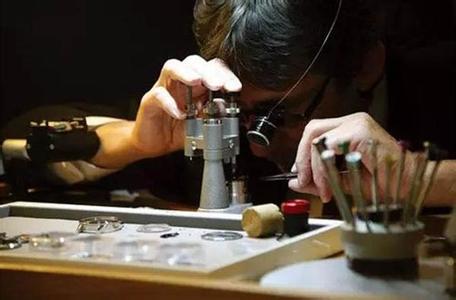ZHANG PEIPEI: In new era, craftsmanship requires balance of tradition, innovation

As Chinese manufacturing continues its climb up the global value chain, the concept of a spirit of craftsmanship has become a focal point of public debate.
As Chinese manufacturing continues its climb up the global value chain, the concept of a spirit of craftsmanship has become a focal point of public debate. In the new era, the implication of this spirit goes beyond the realm of handicraft manufacturing.
It has become the working philosophy for areas where it would appear to not be applicable, like the Internet industry. Also, its connotations have changed. In addition to the traditional connotation of constantly striving for perfection, innovation has become its most prominent meaning in the new era.
Traditional craftsmanship symbolizes an ideal state of working. Humanity naturally has the desire to pursue perfection in work. Concentration, enthusiasm and a commitment excellence are the key components of craftsmanship.
Traditionally, the spirit of craftsmanship emphasized passing tools, technique, knowledge, experience and production models from one generation to the next. At the time, innovation was an afterthought.
But now, the role of innovation has been prioritized. Rapid technological development provides a basis for innovation while various social demands provide the driving force.
Behind innovation is the determination and ability to change the world. Many innovators emerge when people choose to take risks. It is through this process that new production and business models are established, and scientific breakthroughs achieved.
People’s reverence for traditional craftsmen is mostly derived from the impression that they are self-reliant. It is regretful that this mode of production was supplanted by efficient yet dull industrialization. Fortunately, social development has laid the basis for the spirit of traditional craftsmanship to be revived.
Now, without the need for unwieldy equipment and a huge investment, one person, one workshop, one service or one product can produce an enormous impact. With improving infrastructure, easy access to professional knowledge, establishment of a financial support system and development of the information technology, one person can stand out by choosing the right field and attaining excellence in it.
Sure, people still need collaboration with others. But, the collaboration now takes place in a freer and fairer pattern on a broader platform. On this basis, real professional spirit is respected and talented people can gain what they deserve. Workers in turn are encouraged to try their best to harness their own potential, improve techniques and be more responsible for the quality of their products.
Advocating the spirit of craftsmanship is not a temporary fashion trend. The spirit directly connects with new production and organization modes and accurately expresses the practical social demands in the new era as well as the future direction. The Internet era highlights the value of innovation, practice, and professionalization. New types of collaborative relations are being established, individual influence can surpass that of institutions, and human values are being reshaped in the era.
Zhang Peipei is from the Institute of Philosophy at the Shandong Academy of Social Sciences.
